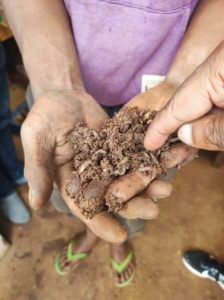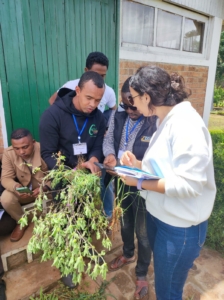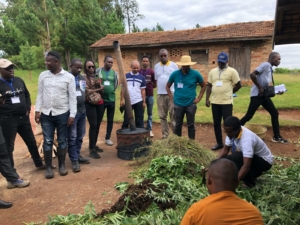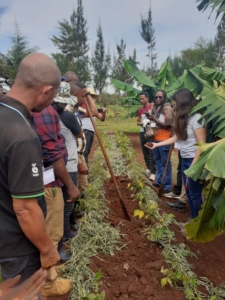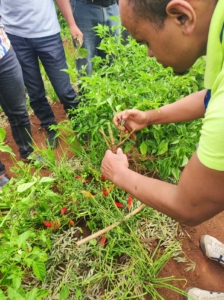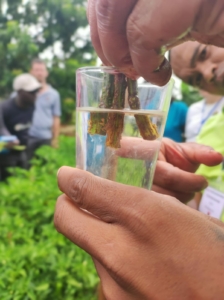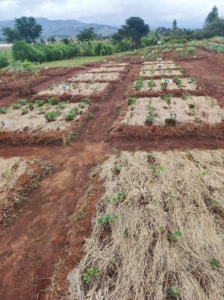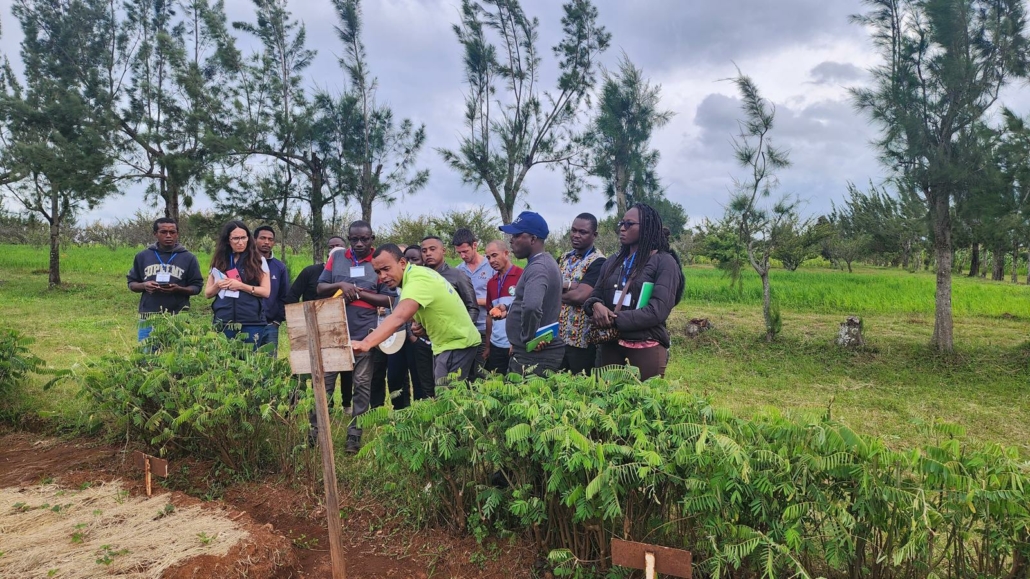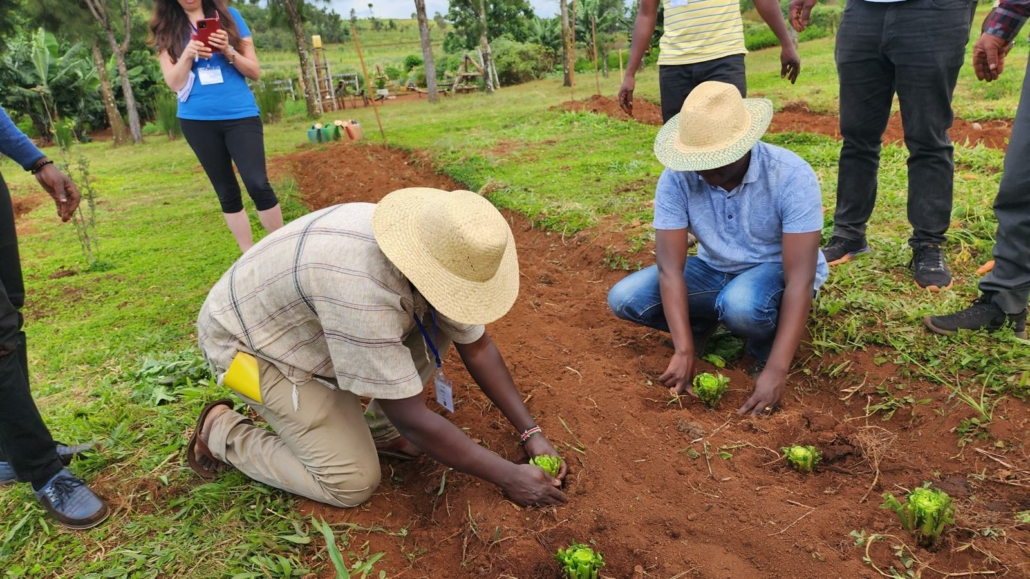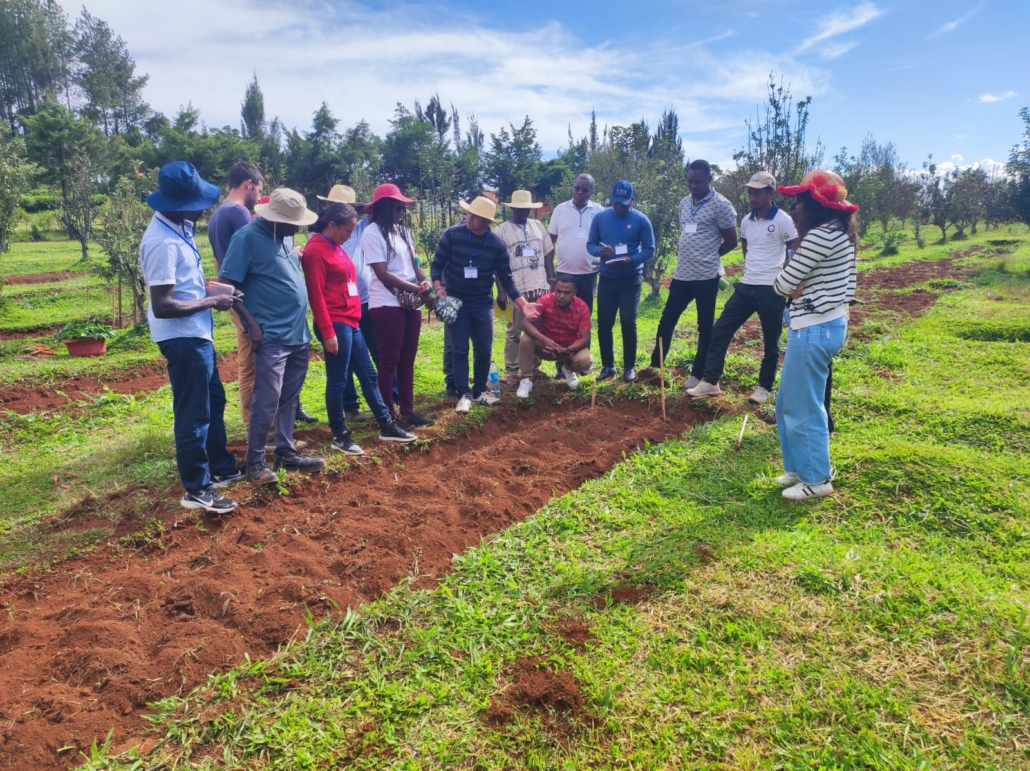In the various countries where Fert operates, technical teams support farmers in improving their production. It is often said that “farming is the foundation” and that its improvement is fundamental for the implementation of dynamic farmer organisations that are beneficial to their members.
A Long-Term Concern for Agronomic Fundamentals
Unfortunately, the technical references available in each country are often very limited: informative documents are outdated, rarely adapted to the realities of farmers, and advocate for the intensification of chemical inputs at the expense of profitability. Other innovations, stemming from development projects, research, or distant experiences, hold many promises but need to be adapted to the local context to reach their full potential. Indigenous knowledge is abundant and often relevant, even though it is threatened by climate change and its effectiveness is highly dependent on the pedoclimatic and economic environment.
In this context, Fert’s partner farmer organisations (FOs) test and disseminate innovations and often face contradictory technical recommendations, which are rarely validated under local conditions and do not take into account the overall production systems. Technicians and FO members must build their own references by addressing the priorities identified by the farmers, which requires broadening the sources of knowledge and adopting a pragmatic, field-based approach.
This observation led Fert to organise, in collaboration with its partners, a training session on the fundamentals of agronomy and advisory services for technicians and agronomists (Fert employees or employees of partner FOs) in the various countries of intervention. The aim was to progress on common ground and share experiences.
A Training That Links Theory and Practice
Held over ten days from 24 February to 6 March 2025, the training on the fundamentals of agronomy brought together 17 participants from 6 countries (Kenya, Côte d’Ivoire, Burkina Faso, Morocco, Malawi, Madagascar) in Antsirabe, in the highlands of Madagascar. The training took place mainly at Ceffel, a vocational training centre run by the Ceffel association for 20 years and a showcase for agroecology in the Highlands. Co-facilitated by Andry RASAMIMANANA, Ceffel’s technical manager, and Delphine BOUTTET, an engineer from Arvalis, the training also heavily relied on the sharing of experiences among participants.
Three modules were delivered, following a holistic approach from soil to plant:
- Soil & Production Module: understanding soils and their constraints, soil fertility, diagnostic tools, and levers for action;
- Plant Health Module: studying the main types of bio-aggressors and their risk factors, learning to identify crop issues, and proposing prophylactic and direct control solutions;
- Seeds Module: identifying the mechanisms at play and methods of seed multiplication in a farmer context.
The strength of the training was its ability to link solid theoretical contributions with practical activities on the Ceffel farm and with a village FO: soil and disease diagnostics, making biopesticides using recipes specific to each country, multiplying Rhizobium strains or effective microorganisms (EM), seed multiplication… The sharing of diverse experiences allowed each participant to progress and explore new agroecological practices.
Results, Lessons, and Perspectives
Feedback from participants was very positive: the training provided a wealth of knowledge, successful experiences, and a robust diagnostic approach focused on action. Whether in conventional or highly agroecological farming, “ready-made” solutions are abundant but rarely work. For this reason, the fundamentals of agronomy are invaluable: by understanding the mechanisms at play, FO and Fert technicians will be able to identify and prioritise problems with the farmers. Their field experience will give them the tools to propose effective agroecological solutions adapted to the context.
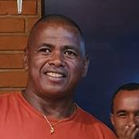
“Knowledge is power. This knowledge must not remain in your hands; we are counting on you to make the most of it and pass it on to the farmers themselves.”
The exchange between peers from different countries and professions (technical coordination, advisory, experimentation, and training) truly bore fruit, creating a dynamic of exchange and a “common language” between countries. “Together, we go further” is often said to farmers: this is also true for agronomy!
The prospects are clear, thanks to a network of practitioner technicians who will continue to develop experiments that will gain in relevance and impact, better-valued technical references, and better-equipped teams serving farmers.

“This training has been a real springboard to enhance my skills as an agricultural advisor. I learned that through simple actions combined with good discussions with farmers, I can improve the health of their soil and crops, and also help them produce quality seeds themselves. This strengthens my understanding of Fert’s approach, which I can now pass on to farmers.”

“Strengthening the agronomic skills of technicians from six different countries, with varying levels of expertise, was a real challenge. Thanks to thorough preparation beforehand, with the second trainer Andry RASAMIMANANA, the training went very well. By alternating classroom sessions and fieldwork, the three modules allowed us to highlight all the important technical messages to convey to farmers. This training also enabled us to share universal methodologies that are useful and applicable in all pedoclimatic contexts (conducting diagnostics and proposing adapted solutions, capitalising and transmitting knowledge…). It is clear that all the trainees have progressed, and a strong group dynamic has been established. I am convinced that these achievements will quickly bear fruit for the farmers.”



